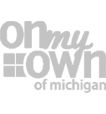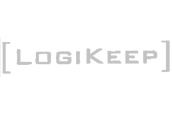I have been surrounded by entrepreneurs my whole life. My dad was an entrepreneur; several uncles and cousins were entrepreneurs; and my husband is an entrepreneur now. So, it’s no surprise that I possess something of an entrepreneurial spirit myself.
In my unique position, I have been a witness to the roller coaster that defines the entrepreneurial lifestyle. I have seen that, regardless of how successful a company becomes, it will inevitably have its ups and downs. If you happen to be an owner of that company, you will feel the bruises along the way. As they say: the buck stops at the top. But it is not only those at the top that feel that impact; the entire family, and especially the spouse, is affected too. As I lived and breathed the environment of the entrepreneur, I nurtured my own theory about it as well: that having a positive home life may, in fact, lead to greater success for the company. The seed was planted.
Fascinated with what it all meant, I worked toward my master’s degree in Human Development and Family Science at Ohio State University and titled my thesis, “Spousal Satisfaction in Entrepreneurial Couples: the Role of Congruity with Family and Business Goals.” It was an eye-opening experience to review all of the data (and to be astounded at the lack of it) about how marriage and entrepreneurship intertwine. But it only felt like a beginning for me; I wasn’t done investigating this uncharted territory.
I have been surrounded by entrepreneurs my whole life. My dad was an entrepreneur; several uncles and cousins were entrepreneurs; and my husband is an entrepreneur now. So, it’s no surprise that I possess something of an entrepreneurial spirit myself.
In my unique position, I have been a witness to the roller coaster that defines the entrepreneurial lifestyle. I have seen that, regardless of how successful a company becomes, it will inevitably have its ups and downs. If you happen to be an owner of that company, you will feel the bruises along the way. As they say: the buck stops at the top. But it is not only those at the top that feel that impact; the entire family, and especially the spouse, is affected too. As I lived and breathed the environment of the entrepreneur, I nurtured my own theory about it as well: that having a positive home life may, in fact, lead to greater success for the company. The seed was planted.
Fascinated with what it all meant, I worked toward my master’s degree in Human Development and Family Science at Ohio State University and titled my thesis, “Spousal Satisfaction in Entrepreneurial Couples: the Role of Congruity with Family and Business Goals.” It was an eye-opening experience to review all of the data (and to be astounded at the lack of it) about how marriage and entrepreneurship intertwine. But it only felt like a beginning for me; I wasn’t done investigating this uncharted territory.
For the next ten years, I developed a survey tool to gain insight into the lives and thoughts of entrepreneurs and their most cherished supporters: their spouses. Using the tool I designed, I interviewed hundreds of such couples in an effort to corroborate what my original data suggested and to delve more deeply into it. I collected the data, analyzed the inferences, and found that it revealed countless secrets to successfully melding marriage and entrepreneurship. My current seminar and workshop series represents just the initial discussions of what the data uncovered! I am grateful for a life immersed in the entrepreneurial environment and for the research that has been tremendously enlightening for me. Now it is time to share these valuable insights, trends, implications and conclusions with you.
* * *
My personal relationship with entrepreneurship started early. When I was growing up, my father owned a commercial real estate company. He was extremely successful and for many years I would overhear him discussing and debating his pending deals. He was delighted every time I asked him about his business. He loved to teach me what he knew and he told me that he hoped that I would follow in his footsteps when he was ready to retire. On many Sunday afternoons, he drove me to locations that he was considering for purchase or lease and he would review the pros and cons of the property with me. He always asked me for my opinion. Did I think this was a solid property? What about the location? What was my opinion based on? Sometimes he would agree with me; sometimes he’d have a different opinion. Either way, it was always an adventure for me and I loved him for helping me see that my opinions are important and valuable. Because of him, I became a more thoughtful and creative thinker.
About the time I entered middle school, my mother surprised me with her own enterprising spirit. With passion and determination, she co-founded a school for children with dyslexia and ADHD. I discovered I had another entrepreneur in my midst! With my dad’s help, they poured as much love, energy and resources into their school as they would have put into a major corporation they were launching. It was a whirlwind: in just three months, they flew to New York, interviewed educators experienced with learning disabilities, hired a headmaster, and opened an accredited K-12 academic institution. We were ecstatic!
Then the roller coaster fell back down to earth.
Within four months, the new headmaster left the fledgling school and returned to Boston, and my parents’ new school, with all of its good intentions, was in jeopardy. I learned an important lesson about the unpredictability of entrepreneurship: No matter what the business, no matter if it’s for-profit or non-profit, no one is immune to the entrepreneurial roller coaster.
After 25 years in real estate, my dad decided to put his business on the back burner while he attempted to build an environmental insurance product. Leaders in the insurance world, from New York to Washington, D.C., told him his idea was brilliant! He felt compelled to move forward and began to seek investors for it. This new pursuit was the first time I heard the words ‘investment capital,’ ‘deferred payments’ and ‘product pitches.’ I was learning a lot in junior high at the time and simultaneously I was learning about a whole new business concept at home. At first, I enjoyed watching my dad spend time on a new project that he was passionate about. But the project dragged on, and seven years passed more quickly than I knew was possible. Our lives changed over that time period. We faced more challenges with my dad spending most of his time on the new business and limited time on his real estate company. Both of my parents were stressed. I remember listening to many of their discussions as they wrestled with what to do: Was it time to pull out and give up? Was my dad the only one who still believed the company was viable? What about all of the time and resources poured into the company? The new venture had its investors and my dad felt enormously responsible and didn’t want to let anyone down.
By the time I was a freshman in high school, my dad’s health was deteriorating. I prayed every evening that he would live through the night. Thankfully, his health did rebound over time. But those days of riding the roller coaster affected all of us: my parents, my sisters and I were not immune.
Sadly, my dad’s insurance product never made it to market; he had to throw in the towel on his project. But after he let it go, he rebuilt his real estate company and thankfully continued to share his wisdom with me and I continued to learn from him. One of his most-repeated admonitions was, “The money isn’t in the bank until the money is in the bank! Even with a signed contract!” I learned about the stress of living without a regular paycheck and never knowing when the next significant deal would be signed and sealed. In spite of his stress, bad habits and bad heredity, my dad had the best attitude of anyone I have ever met in my entire life! My dad died at the young age of 67. He lived hard and loved deeply. My amazing, successful father never created a resume and never had a boss! And he loved being an entrepreneur!
My dad was 64 years old when I got married and treated my husband like the son he never had. On our wedding day, he shared with our guests that he had waited 28 years to say these three little words: “It’s a boy!!” He was so excited! Could it have been because his new son-in-law was an entrepreneur, too?
After we were married, my husband and I moved our belongings into our new home. I brought some furniture I had inherited from my father’s parents, including a new dresser. One afternoon, while I was cleaning our new things, I discovered an envelope underneath the dresser drawer liner. Inside the envelope, I found a letter and an uncashed check. Someone had sent a check for $1,000 along with a gracious thank-you note. From reading the letter, I learned that my grandparents had provided financial assistance to two close friends — the writer’s husband was an entrepreneur, of course — when they were in need. Clearly it was a time when their roller coaster ride was at a low point! Her letter expressed thoughtful gratitude and a promise to pay back all of the money that had been loaned to them. I was surprised and humbled by this discovery. The note confirmed what I had been learning: that even the most successful entrepreneurs (and the two of them were quite successful!) fall on tough times during their pursuit of the American Dream. Was the letter a prophecy about my future life? Here’s the message again: No one is immune to the roller coaster!
So now it’s our turn: my husband, Derek and I. It’s our time. Derek and I have been married for twelve years, and during that time, he has never been guaranteed a regular paycheck, he has never interviewed for a job, and he has never written a resume. (Sound familiar?) When we became serious about each other, I assured him I could live in a cardboard box and be happy, as long as we were together. We’ve had great times and bad, ups and downs, full bank accounts and near-empty ones. I have worked for his companies and I’ve held jobs independent of him. I have tried my hand at starting a few of my own businesses. We have supported each other through it all.
My husband had been a member of a business network called Entrepreneur’s Organization, or EO, since before I met him. His involvement with it was immensely rewarding for him, so once we were married, I joined a spousal forum to engage with it as well. When we moved from Ohio to California and most recently from California to Georgia, we transferred chapters and I joined a new local forum. He has gained great insight and knowledge from the forums he has participated in over the years and I have learned tremendously from my peers about the unique facets of the life of the spouse of an entrepreneur.
During these thirteen years, the breadth of my experiences and the depth of my research have culminated in what has become my life’s work. While innumerable books and articles have been written about how to become a successful entrepreneur and how to make a marriage a happy one, few people have effectively addressed the ‘marriage’ of the two topics: how two people can build an amazing relationship as well as enjoy extraordinary success as an entrepreneurial couple.
After all, when home life and business life intersect and intertwine, life gets complicated. What sours one can sour both. Yet the reverse is also true: what nurtures one will nurture both. It is my wish to help those among us to have a mutually respectful business relationship with their spouse (whether or not they work directly for the business) in addition to their thriving personal relationship. I believe the research discussed in this book will help them succeed much more effectively in both worlds, and as a result, find themselves happier and more satisfied with their lives.
All in the family - Each of these businesses have been founded or co-founded by Trisha’s mother, father, husband or herself.
1964
1981
1985
1997
1997
2002
2002
2003
2004
2009
2010
2011
2012









